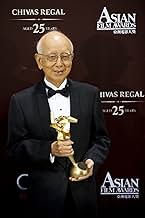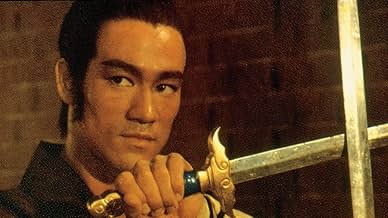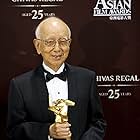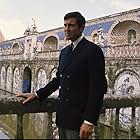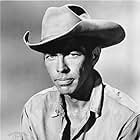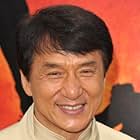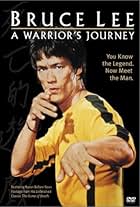IMDb RATING
7.1/10
1.3K
YOUR RATING
The Official Golden Harvest tribute to the Master of the Martial Arts Film, Bruce Lee.The Official Golden Harvest tribute to the Master of the Martial Arts Film, Bruce Lee.The Official Golden Harvest tribute to the Master of the Martial Arts Film, Bruce Lee.
Hoi-Chuen Lee
- Self - Bruce Lee's Father
- (archive footage)
Hon-Sang Siu
- Self - Bruce Lee's Kung Fu Teacher
- (as Siu Hon Sung)
Raymond Man-Wai Chow
- Self
- (as Raymond Chow)
Chuck Norris
- Self
- (archive sound)
Betty Ting Pei
- Self
- (archive footage)
Peter Jung-sum Lee
- Self - Bruce's Brother
- (as Peter Lee)
George Lazenby
- Self
- (archive footage)
James Coburn
- Self
- (archive footage)
Steve McQueen
- Self
- (archive footage)
Linda Lee Cadwell
- Self
- (archive footage)
Jackie Chan
- Self
- (archive footage)
Robert Wall
- Self
- (as Bob Wall)
- Director
- Writer
- All cast & crew
- Production, box office & more at IMDbPro
Storyline
Did you know
- TriviaBruce Lee said, "I was chosen for the role of Kato in The Green Hornet (1966), because I was the only Chinese man to correctly pronounce Britt Reid."
- Quotes
Self - Narrator: Kung Fu was not Bruce's only interest outside of movies at that time. He was quite a snappy dancer and in 1958 won a Hong Kong Cha-Cha Championship.
- Crazy credits"The void is that which stands right in the middle of 'this' and 'that'. The void is all-inclusive, having no opposite - there is nothing which it excludes or opposes. It is a living void, because all forms come out of it and whoever realizes the void is filled with life and power and the love of all things." Bruce Lee "The Tao of Jeet Kune Do"
- ConnectionsEdited into Bruce Lee's Jeet Kune Do (1995)
Featured review
Hong Kong hitmaker
Although it took me quite a long time to finally get around to talking about his films, Bruce Lee was one of the most renowned figures of the 20th century for a reason. This documentary focuses on him, his seemingly superhuman exploits in the world of martial arts (and how he invented an entirely new one), and how he was able to become an idol to millions all over the world in an age before internet. Lee Jun-fan was born on the 27th of November, 1940 in San Francisco to Lee Hoi-chuen and Grace Ho, the latter being half German (although the claim is disputed). Although he was born in America, Bruce's first films would be made in Hong Kong. Among these were The Kid and In the Face of Demolition. At the age of only 12, he was enrolled in a Catholic college in hong kong, but wasn't a very good student due to his preference for fighting over studying. Lee would eventually start to train in Wing Chun, a southern Chinese martial art that puts emphasis on speed. His teacher was Yip Man, who would end up mentoring many people who would go on to become acclaimed martial artists. However, many of his students refused to train with Lee after discovering he was part white, since martial arts at this time was thought to be a strictly Asian skill. It seems hard to believe, but he was also an accomplished dancer, winning a hong kong championship for cha-cha. Meanwhile, Lee continued to have a difficult time at school when he got into more fights, sometimes with kids whose parents were members of chinese triad organized crime families. In 1959, Bruce's parents decided to make him move back to California. Later that year, he began to teach martial arts himself, and his official style was an offshoot of wing chun. In the mid 60s, Lee was featured as the costar on the American action series The Green Hornet, and many audiences felt he should have been the main character. His fighting style was so fast cameras at the time were unable to reliably track his movements. Actor James Coburn studied Lee's version of martial arts, now called Jeet Kune Do. Although successful among audiences, Lee wanted to star in something and not just play a side character. He returned to hong kong after 12 years of being absent there, and went on to star in his first major movie: The Big Boss. Shot in Thailand, the movie was a big hit and was released in America as Fists of Fury. By some strange coincidence, his next hong kong film was called Fist of Fury, which was eventually retitled to The Chinese Connection. In 1972, he starred in Way of the Dragon, which also featured an infamous duel in Rome's Colosseum with Chuck Norris. This was sadly the only film Lee wrote and directed, as he was given complete control of how he wanted the movie to be. He also choreographed the fight scenes. A recurring trend in his movies is that his adversaries are basically always foreigners. Despite Way of the Dragon taking place in Italy, the plot is about thugs who habitually harass owners of a chinese restaurant, and Lee has to stop them. In the last movie he managed to complete (Enter the Dragon), the Japanese are the enemy. Shortly before Enter the Dragon was released in 1973, Lee was in his house discussing his upcoming film with producer Raymond Chow, prophetically titled Game of Death, when both went to visit a Taiwanese actress named Betty Ting Pei. When Chow left, Lee said he had a headache, for which Betty gave him a painkiller. That night, he went to bed early but was supposed to get up for dinner, but didn't. According to Betty, she went into his room and found Lee unresponsive. After being taken to hospital, he was pronounced dead immediately at age 32. According to his autopsy, Bruce Lee's brain had swollen to over 10% its normal size due to the presence of a tranquilizer found in the painkiller Betty gave him. People all over the world were too shocked for words. It seemed inconceivable to all that someone like Bruce Lee could just drop dead. Betty Ting Pei would have to put up with people accusing her of having something to do with Bruce's death for years, and conspiracies were rife. Bruce Lee is gone, but he will always be remembered as the pinnacle of human physical prowess and the man who introduced martial arts to american audiences. However, his filmography doesn't end just yet. At the time of his death, Lee's film Game of Death was about 30% completed. Robert Clouse, who directed Enter the Dragon, finished the movie utilizing a double for Lee and footage from his other movies. This meant the plot had to be changed, but the newly slapped together Game of Death was released in 1978. While not a total overview of Bruce's life, I thought this was a pretty good documentary. One thing bothers me though: I don't know how they managed to talk about Way of the Dragon and not bring up Chuck Norris. It's also quite disappointing how there's no mention of the one inch punch, which was a move demonstrated by Lee that seems to defy physics. Standing just mere centimeters away from a person, he could use several of his body's muscle groups to generate a strike so powerful it would often send the person flying back a couple of feet. Overall, this documentary is not as in depth as I would have liked it to be, but it does at least go over the brief but spectacular career of a fighting legend.
- nickenchuggets
- Nov 5, 2023
- Permalink
- How long is Bruce Lee, the Legend?Powered by Alexa
Details
- Release date
- Country of origin
- Language
- Also known as
- Bruce Lee: Die Legende
- Production companies
- See more company credits at IMDbPro
Contribute to this page
Suggest an edit or add missing content


